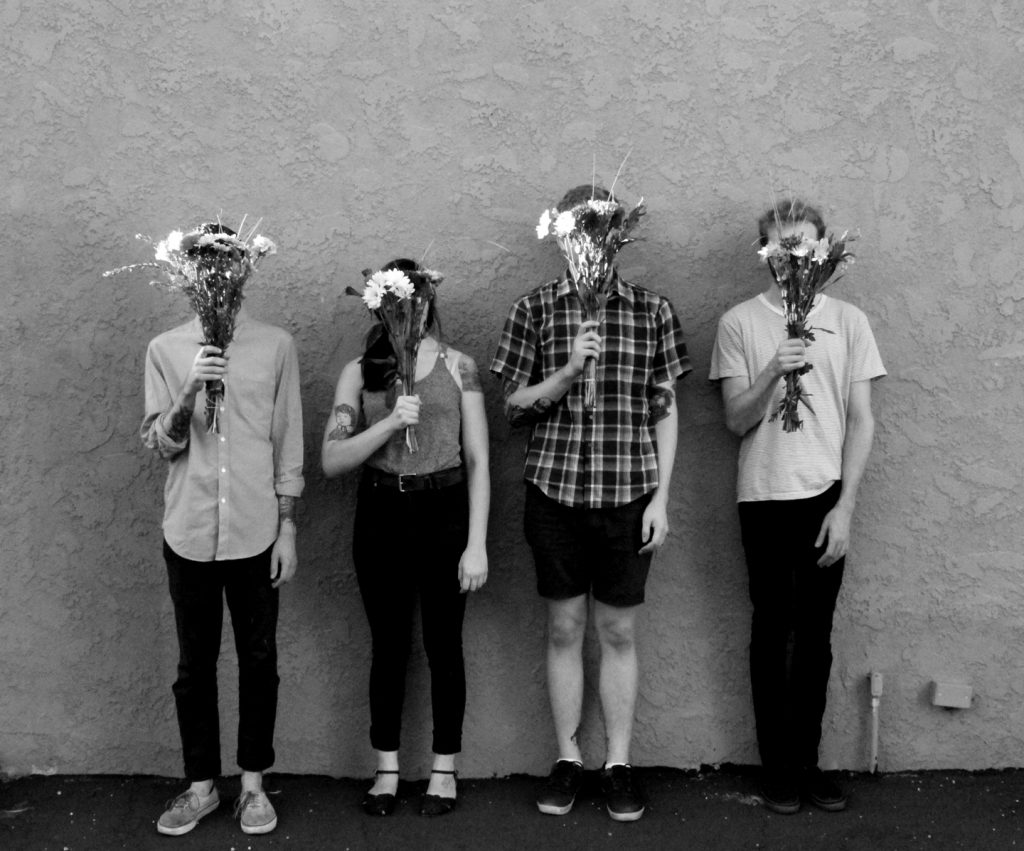Everyone always has that slight moment of glamorizing the idea of living alone at some point or another. Maybe it’s just the idea of not having to answer to anyone or simply gaining the freedom to put your things everywhere without worry of others’ opinion. When Pity Sex began crafting their latest album, White Hot Moon, the band’s drummer and co-songwriter, Sean St. Charles, found himself taking full grasp of the realizations that came with his decision to live by himself in the band’s home base of Ann Arbor, Michigan. Although he’s gained a deeper perspective of his relationships and self, he stays true to his focus on the austere of the simple routine that comes when there aren’t others to distract.
The strength of these realizations from St. Charles push through as the heaviest force of White Hot Moon. It’s apparent that St. Charles and co-songwriter Britty Drake wanted the album to be utilized for all it was worth, stating honesty that stands too strikingly to be passed amongst their familiar thick fuzz.
Allston Pudding: You have said that “White Hot Moon” was written while you were living alone, so the song focuses on the simple things that make up a day. How has that perspective of routine affected the way that you think about touring life?
Sean St. Charles: It’s hard, because there’s not much routine on tour. You do kind of create your own structure between the load in and getting in the venue, but at a certain point on tour nothing seems real or important anymore. People come and everyone that you love comes, and some interesting things come out of that. In that sameness, the peculiar moments stand out and once you do 30 days of small weird moments you can be in a pretty weird place.
AP: Within “White Hot Moon” you have that mantra, “we’ll run together, but we won’t stay”. What exactly is meant by that line?
SS: There’s this thought talking about how people rush against each other in life. Either with friendships or relationships, the coming together of people changes both persons’ lives. It changes the perspectives and I think that something that you don’t really realize until you’re older maybe is that it would be crazy to expect the people in your life now to always be there. People that you love and that you’re with change quite a bit, and I really like this thought of approaching life in a way where that feels okay. You can celebrate coming together and when people fall apart, celebrating whatever the next thing is.
AP: Ann Arbor kind of feels like Boston in the way that it’s a college city and you’re surrounded by all of these kids that want to constantly be high energy. How do you perceive your own city as an outsider to this way of life?
SS: It’s weird. I think to some extent The University of Michigan is the only college, so it’s much more singular than Boston, but the one school makes it this crazy liberal place because of its esteem and its money and its cool art and cool music, especially at a really established level. But it is weird, especially with the thought that undergrads come to town and for anyone who is my age- I’m 27- there is limited space, so there’s not a lot of townies. I moved to Ann Arbor to go to the University and I’ve been here since, but there’s nothing that feels especially homegrown or permanent, which is kind of cool because you can exist outside of the margins. You can bring stuff in and interact with things that you think are interesting, but there is no set expectation. It gives you a lot of room to do whatever you want.
AP: How was the experience of recording White Hot Moon in Ann Arbor?
SS: So we all live in Ann Arbor except our bass player [Brandon Pierce] who now lives in Detroit. He lived in Ann Arbor when we started the band. Detroit is only 40 minutes away and he comes into Ann Arbor to work a couple days a week, so we did all of the writing here. The city is only about three square miles and it’s super densely populated, so you can walk anywhere. It’s great.
But you can’t help but let the place come into what you’re doing, especially since the culture is so singular. It definitely factored into what we were doing.
AP: How does your songwriting on White Hot Moon differ from that on Feast of Love?
SS: On Feast of Love, I think that I was more interested in playing into expectation, being overwrought and overdramatic because that is the thought that comes with a band called Pity Sex who is expected to write breakup and love songs. It was important for me to establish that, so I played into that, writing lyrics and hooks that were obvious to that and made it known that it was all done intentionally.

On the new record I think that we still do that musically, but I wanted to expand. I wanted to make it a little stranger. Lyrically, I moved away from things that are really gratifying in an obvious way because that is what Pity Sex has always been about. The part that makes you feel a certain way and the lyric that you just want to repeat, there’s the obvious thing that feels right, and for White Hot Moon I did things that felt weirder and more challenging.
AP: Pity Sex is pretty unique in the way that both you and Britty [Drake] share songwriting duties. What is your favorite lyric that Britty has written?
SS: She has a lot of good ones. Britty is less interested in the super satisfying one liner than I have been in the past, so I think that her songs are taken as a whole unit. That’s definitely an important aspect of what she’s doing. Lyrically, maybe my favorite song of hers is “Hollow Body” on Feast of Love and I think a lot of people really like that one. It was written entirely by herself and when she tracked those vocals I couldn’t help but be amazed by how smart and tragic the song is.
Catch Pity Sex with Petal and PWR BTTM at The Sinclair on Thursday, June 9th. Tickets are $14 in advance/$16.00 the day of the show.

